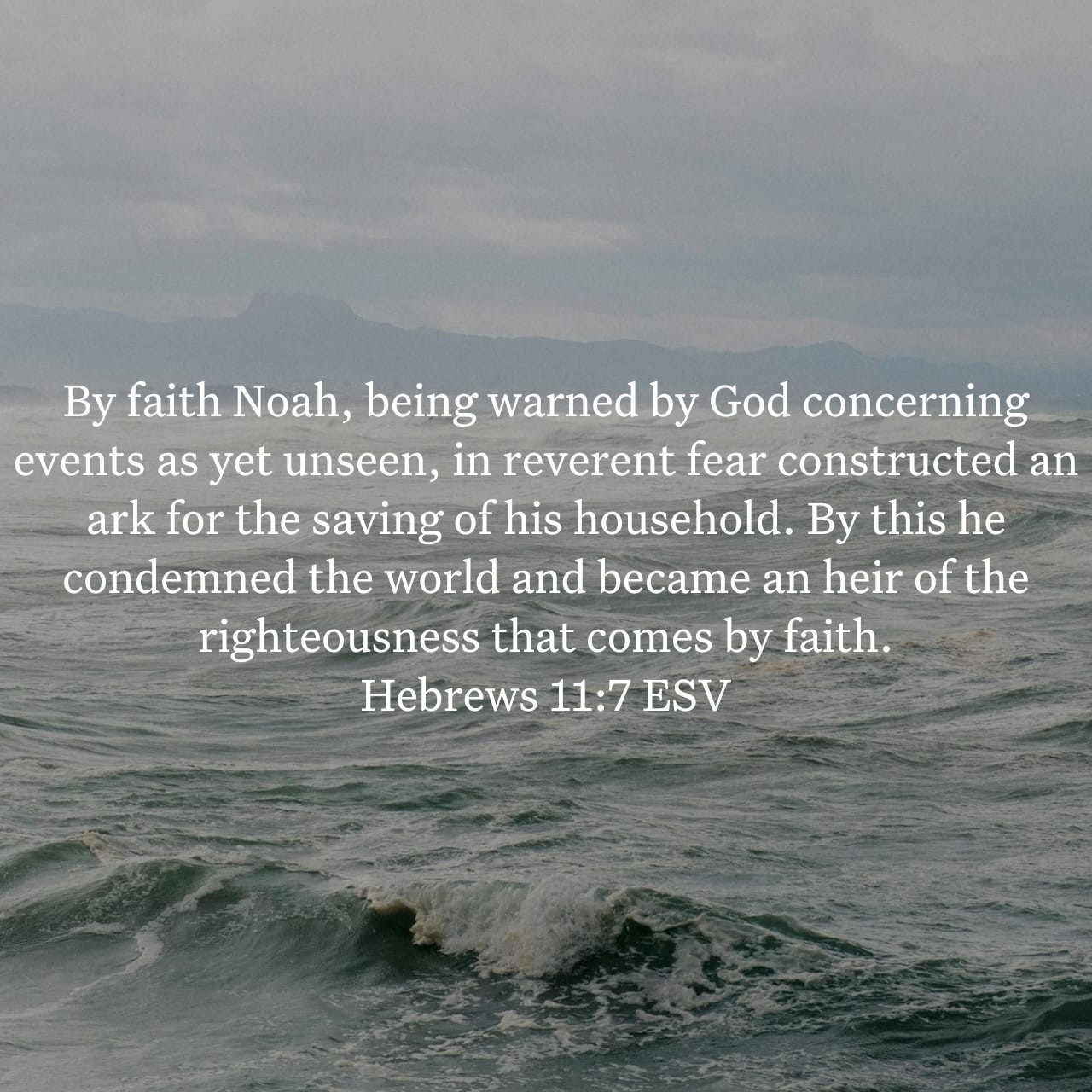Devotional 18 July 2025

Hebrews 11 moves in a purposeful sequence. Abel bore witness to faith through his obedient death. Enoch bore witness through his faithful walk and was taken into life. And now Noah enters the scene, bearing witness through enduring action. His story is one of the most well-known in all of Scripture, yet it carries truths often overlooked: faith listens, obeys, warns, and inherits. And perhaps most provocatively: it persists.
Noah is introduced as a man who was warned by God about “things not yet seen.” Rain had never fallen. Flood had never come. Judgement on a global scale had never occurred. But Noah believed God’s word over the evidence of his eyes or the culture of his time. While the rest of the world continued in comfort and corruption, Noah responded with reverent fear and long-term obedience. For a hundred years he built the ark, trusting a future that no one else could see.
Jesus tells us that the final days before the judgment on Israel would be “as it was in the days of Noah” (Matt. 24:37; Luke 17:26). People ate, drank, married, then judgment fell swiftly. But here’s the shocking twist: in both the flood and Jesus’ warning, the ones who were taken were not the righteous. They were the ones who perished in judgment. The ones who were left behind (Noah and his family) were those who remained to inherit a cleansed world.
This directly challenges the modern “rapture” narrative which suggests that the righteous will be whisked away and the wicked will remain. But in Noah’s case, being “left behind” was the reward of faith. The judgment took away the corrupt. The faithful stayed. As Jesus said, “Blessed are the meek, for they shall inherit the earth” (Matt. 5:5). Or as Psalm 37 repeats: “The righteous shall inherit the land and dwell upon it forever” (v. 29). Paul echoes it, saying Abraham would be “heir of the world” through the righteousness of faith (Rom. 4:13).
In other words, the biblical pattern is not one of escapism but endurance. God does not remove the faithful from the world, but preserves them through judgment to inherit what He renews. Hebrews tells us Noah “condemned the world” through his obedience. His life and labor stood as a rebuke to a world in rebellion. He was not just a builder, he was a preacher, a “herald of righteousness” (2 Pet. 2:5). His faith wasn’t silent. It bore witness. And that witness wasn’t popular.
Faith always demands action, especially when the world thinks you’re crazy. Noah’s entire life was an act of obedient protest. And because of it, he was counted righteous. He was not taken away. He was left behind, to receive what God had promised. This is the pattern for us. As Christians, we are not called to hide or hope for escape. We are called to act. To listen when God warns. To obey when the world mocks. To build even when no one sees the storm. And through that, we become heirs, not of some distant dream, but of the Kingdom of God coming to earth.
Jesus warned, “Heaven and earth will pass away, but my words will not pass away” (Matt. 24:35). The question is whether we will respond to those words with the same reverent fear and enduring faith that Noah did. Because the Christian life is not a life of panic or passivity, it is a life of faithful participation in God’s redemptive plan.
So let us not shrink back. Let us build. Let us preach. Let us believe. For though judgment comes to the world, those who live by faith will remain, and inherit the world made new.
Noah our third witness of faith, still speaks through his actions. May we have ears to hear.